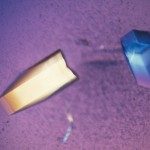Link to Pubmed [PMID] – 32926887
Link to DOI – S0166-3542(20)30345-410.1016/j.antiviral.2020.104931
Antiviral Res. 2020 Sep; (): 104931
Equid herpesvirus-1 infections cause respiratory, neurological and reproductive syndromes. Despite preventive treatments with vaccines, resurgence of EHV-1 infection still constitutes a major threat to equine industry. However, no antiviral compound is available to treat infected horses. In this study, 2,891 compounds were screened against EHV-1 using impedance measurement. 22 compounds have been found to be effective in vitro against EHV-1. Valganciclovir, ganciclovir, decitabine, aphidicolin, idoxuridine and pritelivir (BAY 57-1293) are the most effective compounds identified, and their antiviral potency was further assessed on E. Derm, RK13 and EEK cells and against 3 different field strains of EHV-1 (ORF30 2254A/G/C). We also provide evidences of synergistic interactions between valganciclovir and decitabine in our in vitro antiviral assay as determined by MacSynergy II, isobologramm and Chou-Talalay methods. Finally, we showed that deoxycytidine reverts the antiviral effect of decitabine, thus supporting some competition at the level of nucleoside phosphorylation by deoxycytidine kinase and/or DNA synthesis. Deoxycitidine analogues, like decitabine, is a family of compounds identified for the first time with promising antiviral efficacy against herpesviruses.


